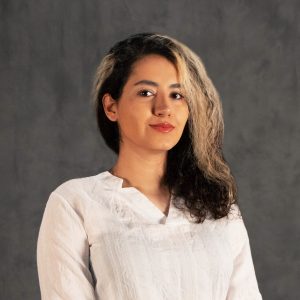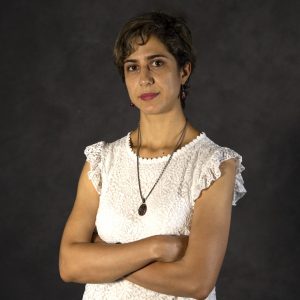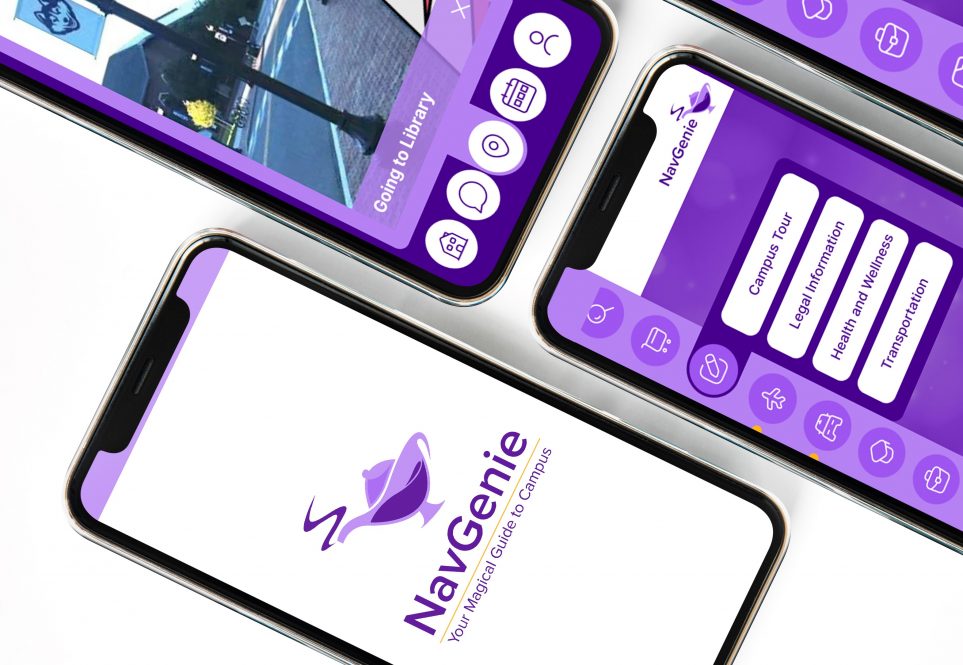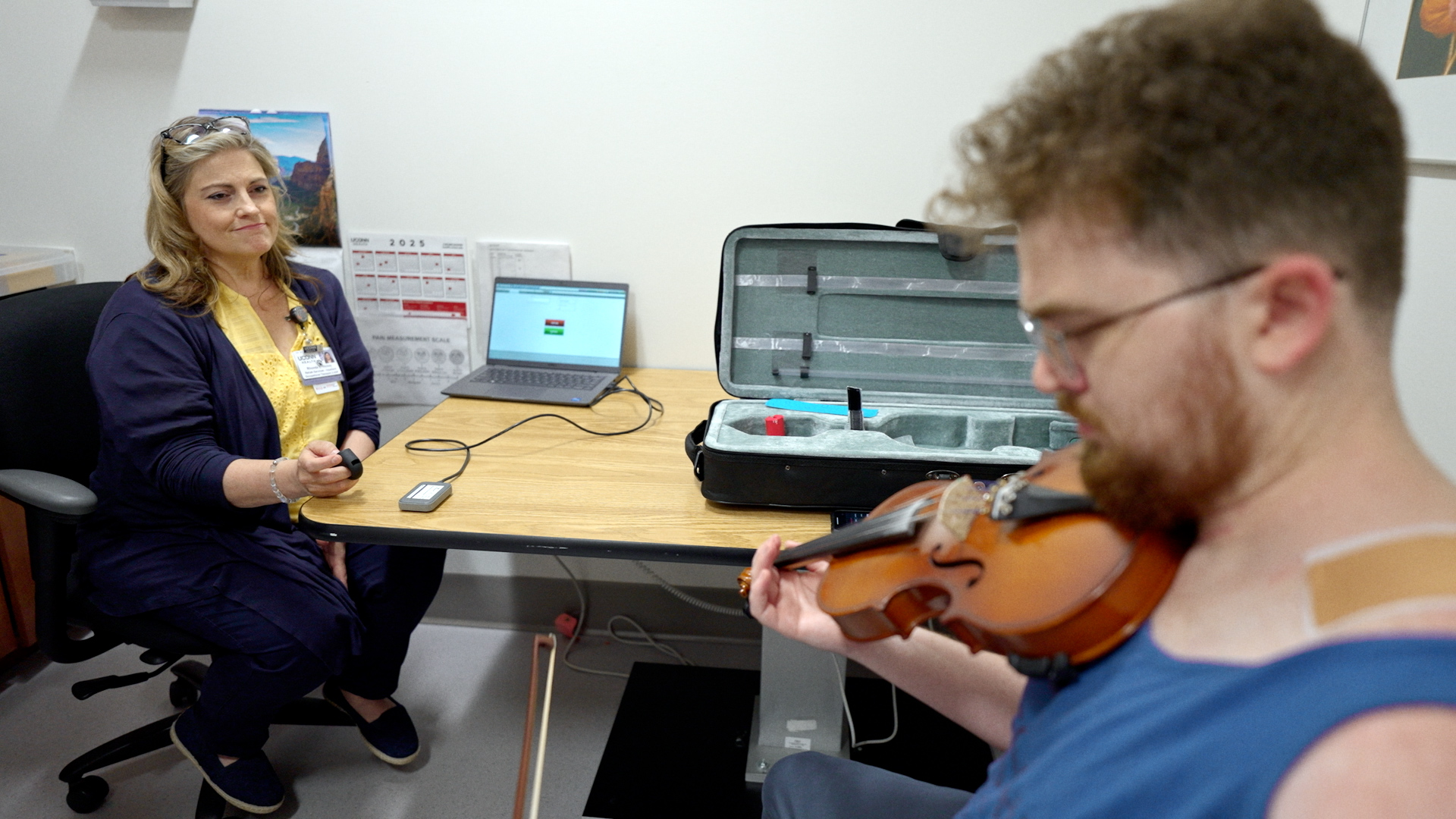When Zahra Zare ’24 MFA emigrated from her home in Iran five years ago, she left behind more than family and friends. The blue curtains in her bedroom, the piano at which she spent hours, the sight of street vendors at New Year’s became memories when she arrived in the U.S.
“Last year I visited Iran and many things had changed,” she says. “My city, my country, even my family were different, and I’ve changed too. It’s almost like I don’t have any roots, like I’m split in two parts and trying to fit in wherever I am.”
Maryam “Maria” Farhadi ’25 MFA says that over the two years since she left Iran, she oftentimes also feels like she doesn’t belong anywhere, the strength of familial bonds and friendships tested with distance.
The idea of home, she says, is the place where she grew up, not necessarily where she lives now or where she stays when she visits.
“It’s a very bold change,” Farhadi says of the decision to move abroad. “You have lots of things on your mind. How does transportation work? What should I do for housing? What should I do for even small things like grocery shopping? There are lots of questions.”
Having family members already in the U.S. helped make the move 6,300 miles across the Mediterranean Sea and the Atlantic Ocean fractionally easier for the two digital media and design grad students, although it still was nonetheless challenging.
And while they say many other international students they’ve spoken to at UConn also have someone here they can look to for help, routine things can still be a struggle – like accidentally going to the Communication Department in the Arjona Building for a meeting instead of University Communications in the Lakeside Building clear across campus.

For someone new to the University, never mind new to the country and its culture, campus life can be daunting. Knowing that struggle, Zare and Farhadi had an idea to help.
In spring 2023, they teamed with two other students in associate professor Heejo Gwen Kim’s DMD class, Experimental & Alternative Techniques, to develop an app that at first was meant to help international students navigate airports in the United States.
They pivoted to test a smaller area first and instead developed NavGenie, an application that provides users a GPS-like, augmented reality map of the UConn campus – one that’s unlike existing programs because it can show the inside of buildings and locations of classrooms and offices.
At the culmination of the experimental techniques class, Farhadi and Zare agreed to keep going.
They successfully applied for funding from UConn’s Connecticut Center for Entrepreneurship and Innovation (CCEI), in which they were members of the 24th cohort of Accelerate UConn, the University’s National Science Foundation I-Corps site. That’s allowed them to develop the concept further.
Farhadi says all new students could benefit from NavGenie, but it is geared specifically to international students like them. She and Zare recently added a social component like what someone might find on Discord, which offers channels and rooms for people to converse in.
It also can be tailored to any school’s specifications.
“Even before international students come to America, they have lots of questions, so we tried to create a way for them to ask their questions and find their answers,” Farhadi says. “NavGenie will help them get familiar with their new environment and ease the transition and sense of isolation.”
They surveyed about 50 international students at UConn, starting with people they knew and asking for the names of others and soliciting through the Daily Digest, to discern exactly what app features could be beneficial.
One student told them he lined up a place to live on a popular app that offers homes and apartments for short- and long-term rent, paid in advance, and when he got here learned it was a scam and there was no place to stay.
Zare says that when she arrived in the U.S., she not just leaned on her sister for help, but also relied on gut instinct and moved into a slightly more expensive apartment because she knew it would be safe. This is, after all, not her first time abroad.

“This is my third master’s degree,” she says, explaining that she got her bachelor’s in painting and her master’s in animation in Iran. She then moved to Italy and got a second master’s, this one in art history.
At UConn, she just earned her MFA in motion design and animation, developing the animation, “My Lost Connections,” as her thesis project.
She says her experience in Italy was more difficult than the one here, mostly because she didn’t speak Italian. At least in the United States, people speak English as does she.
“At least I can communicate,” she says. “But things are very different than in Iran. Here, for example, UConn’s campus is not like a college campus in my home country. We don’t have such big campuses. The other challenging part when you are in a new place is that you don’t know anyone. There were four other Iranian students in my program, and that helped.”
Farhadi says finding friends is difficult.
“You leave everything, all your friends, all your family, back in your country, and when you arrive at a new place it’s very hard to find others in your own community,” she says.
Farhadi immigrated here two years ago after getting her bachelor’s in Iran, where there weren’t any DMD master’s degree programs in UX/UI design.
UConn’s MFA program just graduated seven DMD students, including Zare; Farhadi’s class has nine. For her thesis, she’s designing an application for dementia patients.
“I try to make American friends,” says Zare, who’s applied for full-time work and hopes to stay in the U.S. “One of the reasons is the English language.”
“Also, the culture,” Farhadi notes.
“I like to find ways to connect with American people, especially because I’m a teacher,” Zare adds. “There are things that happen in class that can be confusing because we do things differently in Iran, so I’m learning about the culture and the language. But I don’t want to lose my connection to my country. I have Iranian friends too.”
The two are happy to have found each other, each complimenting the other and saying they are sources of inspiration and motivation for the other.
And they hope to continue with NavGenie.
“CCEI really helped us, but we need more grants to continue to develop the technical side of it,” Farhadi says. “We are looking for any kind of collaboration and appreciate the guidance so far from Professor Kim and the head of DMD, Heather Elliott-Famularo. If anybody is interested in working with us, we’re open to partnerships.”



